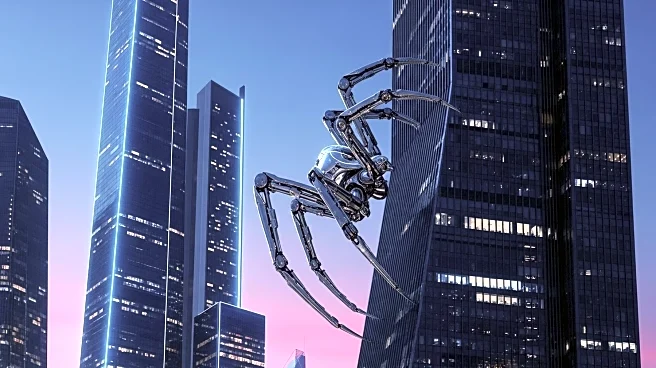What's Happening?
NetEase developer Naked Rain has released new footage of its upcoming open-world RPG, Ananta, at the Tokyo Game Show 2025. The game, designed for mobile devices, has drawn attention for its similarities to popular titles like Grand Theft Auto and Spider-Man. Ananta features web-slinging mechanics reminiscent of Spider-Man, along with Venom-like powers and chase scenes similar to those in Uncharted. Despite these similarities, Naked Rain has confirmed that Ananta will not rely on exploitative gambling mechanics, such as gacha systems, for monetization. Instead, the game will offer cosmetic and customizable features for purchase. The game promises multi-level exploration, including city rooftops and interiors, and interactive NPCs that react to player actions.
Why It's Important?
The development of Ananta highlights ongoing debates in the gaming industry regarding originality and the use of established mechanics from popular games. While some players view the blending of elements from various games as innovative, others criticize it as 'shameless' copying. The decision to avoid gacha mechanics reflects a shift in mobile gaming towards more ethical monetization strategies, potentially influencing other developers to reconsider pay-to-win models. This could lead to broader changes in how mobile games are monetized, impacting both player experience and industry revenue models.
What's Next?
As Ananta approaches its release, the gaming community will be watching closely to see if the game can deliver a unique experience despite its borrowed elements. The success or failure of Ananta could influence future game development strategies, particularly in the mobile gaming sector. Developers may be encouraged to innovate beyond established mechanics and explore new monetization models that prioritize player satisfaction over profit. Additionally, the reception of Ananta may prompt discussions about intellectual property rights and the ethical implications of borrowing game mechanics.
Beyond the Headlines
The controversy surrounding Ananta raises questions about the balance between inspiration and imitation in creative industries. As games increasingly borrow elements from one another, the line between homage and plagiarism becomes blurred. This situation may lead to legal challenges or calls for clearer guidelines on intellectual property use in game development. Furthermore, the shift away from gacha mechanics could signal a broader cultural change in gaming, where players demand more transparency and fairness in how games are monetized.











